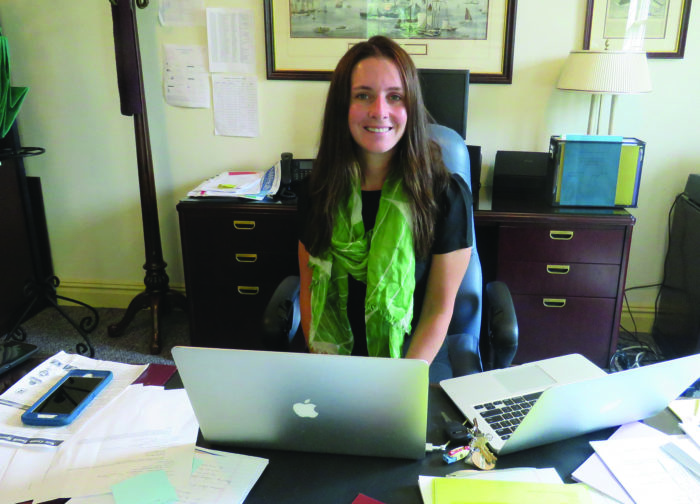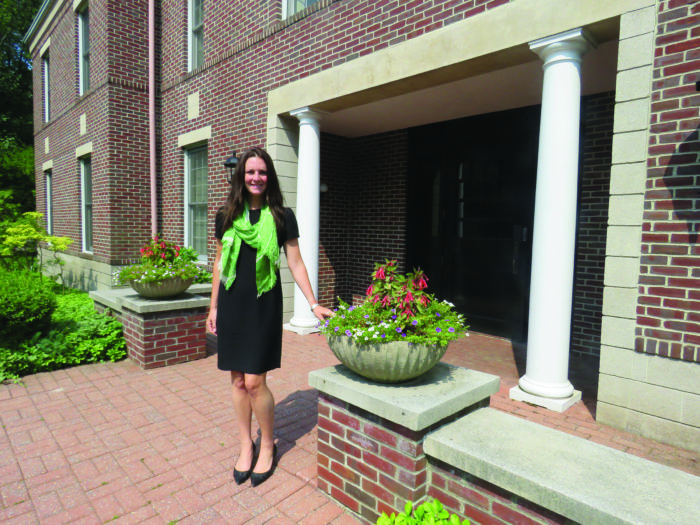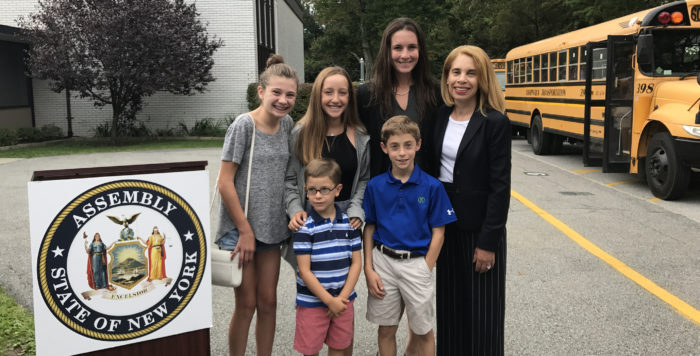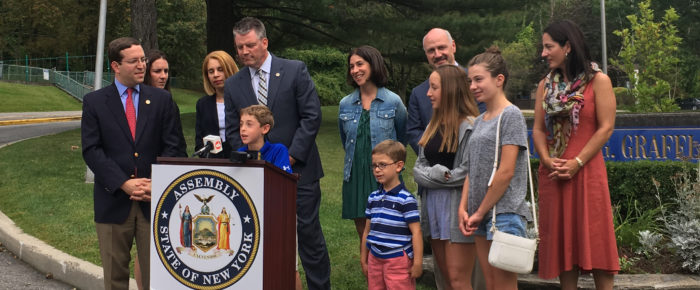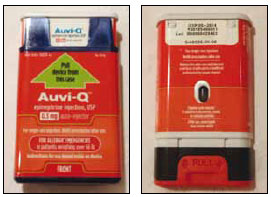Article and Photos by Grace Bennett
Chappaqua, NY, February 12— For most kids, boarding a bus by the middle of February is a non event. But for two Grafflin elementary school students–Luke Leopold, 5, and Jared Saiontz, 10–it was a milestone filled with excitement, pride and clear joy.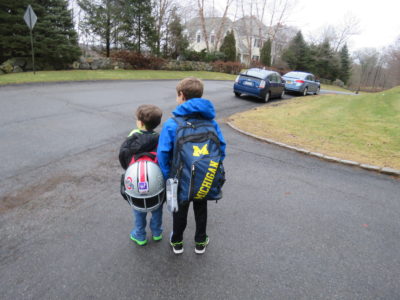
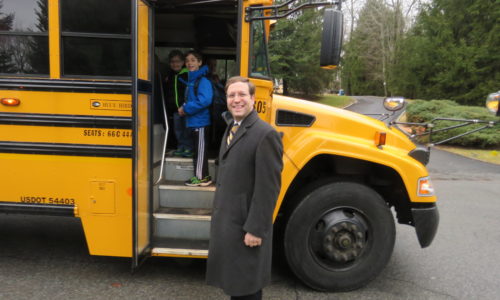
It was the first time either boy took the school bus–thanks to the passage of new, New York State legislation that authorizes bus drivers who choose to participate to administer life-saving epinephrine to a child undergoing anaphylaxis, an allergic reaction that has a rapid onset and can quickly turn deadly. (Check with your school and your bus company.) The law went into effect today paving the way for safe travel for the two boys, both of whom have food allergies.
New York State Assemblyman David Buchwald, who introduced the bill, escorted Luke and Jared to the bus. Sporting their backpacks with epinephrine-delivering devices clipped onto the back of them, the two boys joined hands sauntering over together to the bus before proudly climbing on board. The bus driver greeted them with a broad smile.
Buchwald later described the moment as “what I live for as a legislator,” in that, he said, he could “help youngsters live the life they imagined.”
State Senator Terrence Murphy sponsored the bill in the state Senate and Governor Cuomo signed in the law the bill which now allows school bus drivers and others employed by firms providing services to schools to administer epinephrine when a child suffers anaphylaxis shock.
The law, Buchwald explained, allows school kids who have allergies (both food related–1/13 children have food allergies–or due to other causes such as bee stings) to ride the bus in safety. “Previously no responsible adult was authorized to respond.” Without a quick response to an unanticipated attack, a child could go into anaphylactic shock and possibly die. The drivers can receive training using the auto injector that delivers epinephrine (known widely by its trade name, the Epi Pen). Kids with allergies keep the device fastened outside their backpacks for immediate access.
Jared’s mom, Stacey Saiontz, and Luke’s mom, Jackie Leopold saw the kids off too. They had both advocated for passage of the legislation. Stacey recalled a 15-year-old Massachusetts girl whose life was saved by a bus driver administering epinephrine. This morning, she was simply elated. “I’m so excited for Jared and Luke and all the other food allergic children who rode the school bus safely today,” she said. “THEY are so excited.”
Grace Bennett is Publisher and Editor-in-Chief of the Inside Press.
